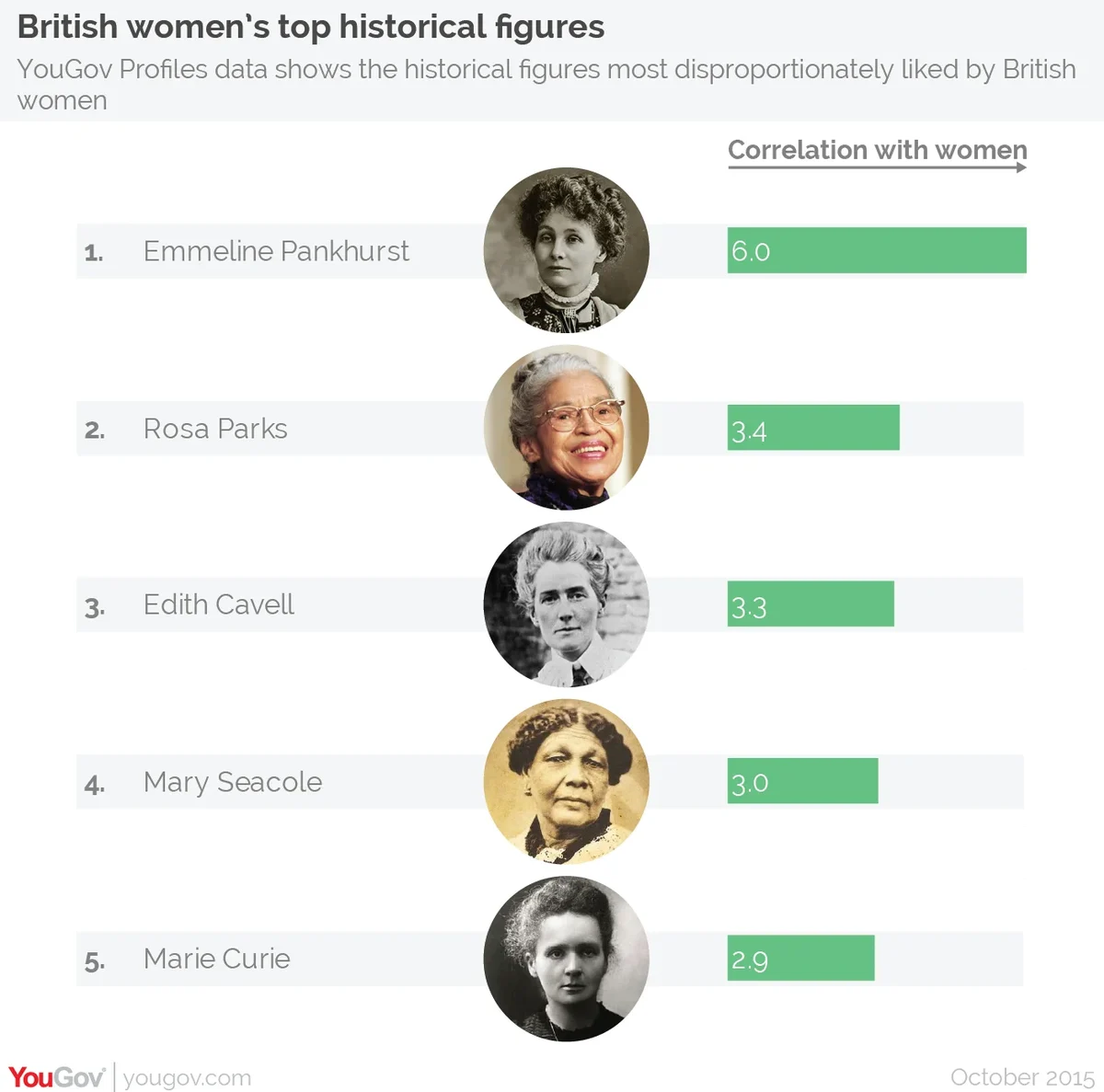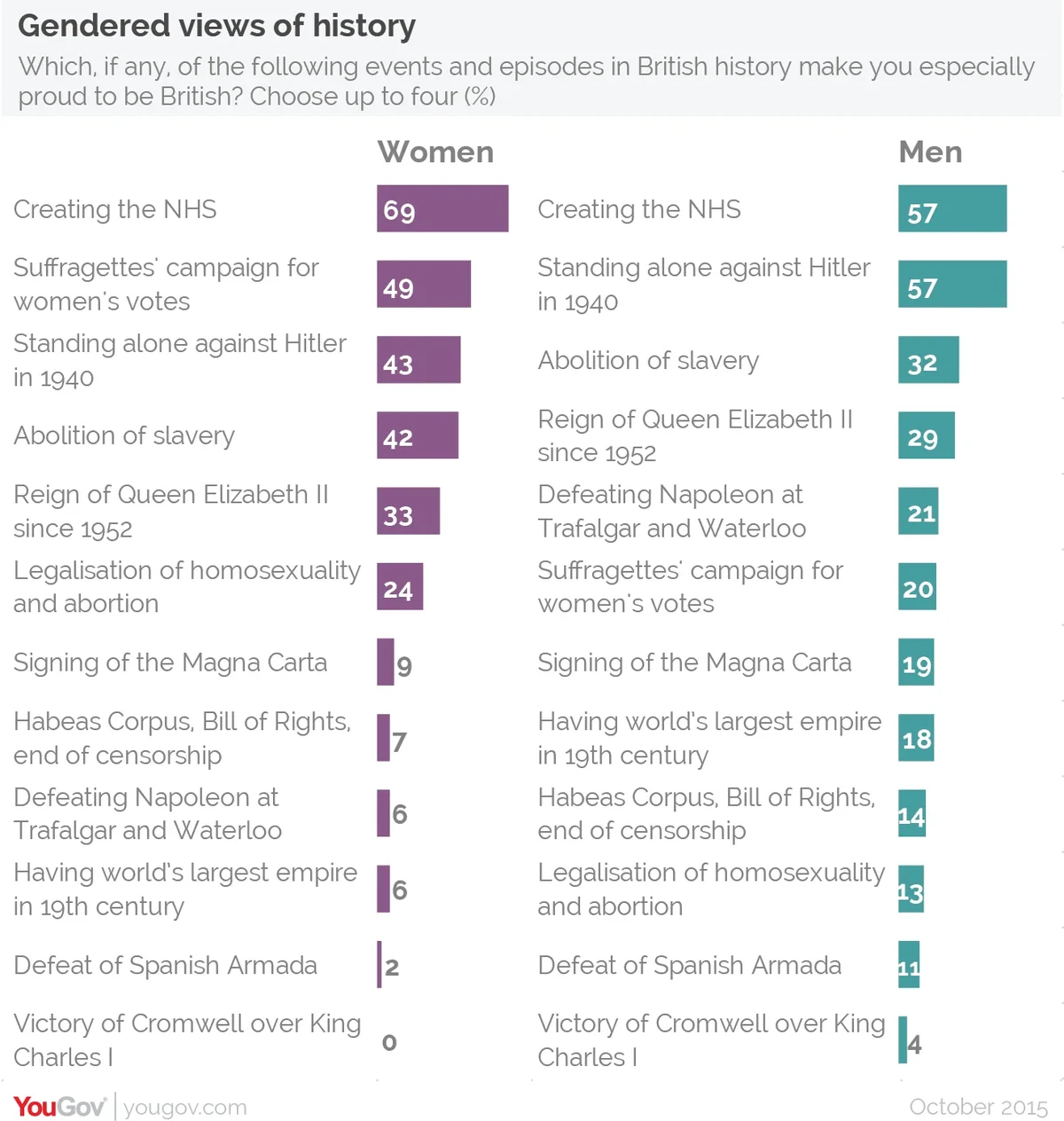Emmeline Pankhurst is the historical figure most particularly admired by British women
Suffragette, the first ever feature film to tell the story of women's struggle to get the vote in the late 19th and early 20th century, opened the London Film Festival yesterday, with an all-star cast including Helena Bonham Carter, Carey Mulligan and Meryl Streep as Emmeline Pankhurst. Carey Mulligan, who plays a housewife who risks losing the custody of her children to campaign for universal suffrage, said: “The mere fact that it’s taken 100 years for this story to be told is hugely revealing... It took years of struggle and women being tortured, abused and persecuted, and it’s never been put on screen.”
A new analysis of YouGov Profiles data from nearly 16,000 people reveals that Emmeline Pankhurst, leader of the Suffragette movement, is the historical figure most particularly admired by women in Britain. With a correlation score of 6.0 Pankhurst is the model historical figure for women, ahead of the next four figures who score between 2.9 and 3.4.

American civil rights activist Rosa Parks; British WWI nurse Edith Cavell; Mary Seacole, nurse in the Crimean War; and Marie Curie, the first woman to win a Nobel Prize, are also particular heroes of British women.
These aren't the historical figures that are most popular overall – in absolute terms, Emmeline Pankhurst is the joint fifth favourite historical figure for British women, tied with Marie Curie but behind Churchill, Einstein, Harold Wilson and Clement Attlee.
Gender and history
New YouGov polling data also reveals how gender colours our views of history. Asked which four events or episodes in British history make us most proud, women overwhelmingly choose the creation of the NHS (69%). For men this is also important, but is tied with standing alone against Hitler in 1940 (both chosen by 57%) – which women actually place behind the Suffragettes campaign for women's votes (chosen by 49%, compared to 43% for standing against Hitler).
42% of women say the abolition of slavery in the late 18th and early 19th century makes them most proud to be British compared to 32% of men; 24% of women choose the legalisation of homosexuality and abortion in the late 1960s compared to 13% of men.

Out of the choice of four episodes men tend to distribute their top historical events more evenly. Events from lower down the list like the singing of the Magna Carta and having the world's largest empire in the 19th century are chosen by fewer than 10% of women, but nearer 20% of men.
Women over the age of 30 who satisfied certain property criteria were given the right to vote in 1918, and were allowed to be elected to parliament via separate legislation. In 1928 suffrage was extended to all women over the age of 21.












